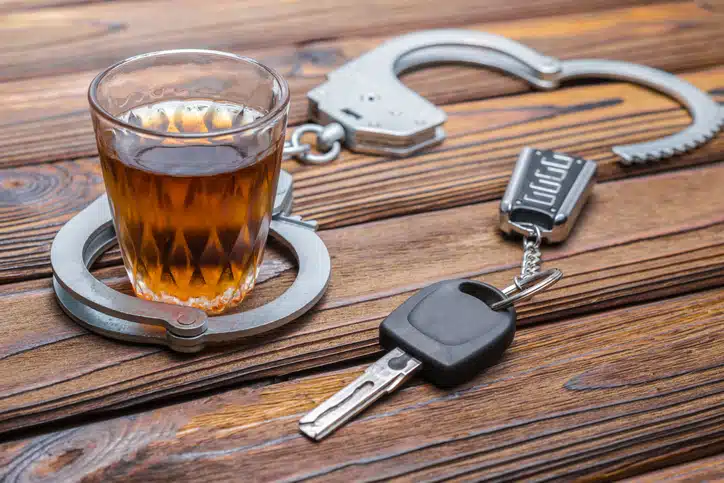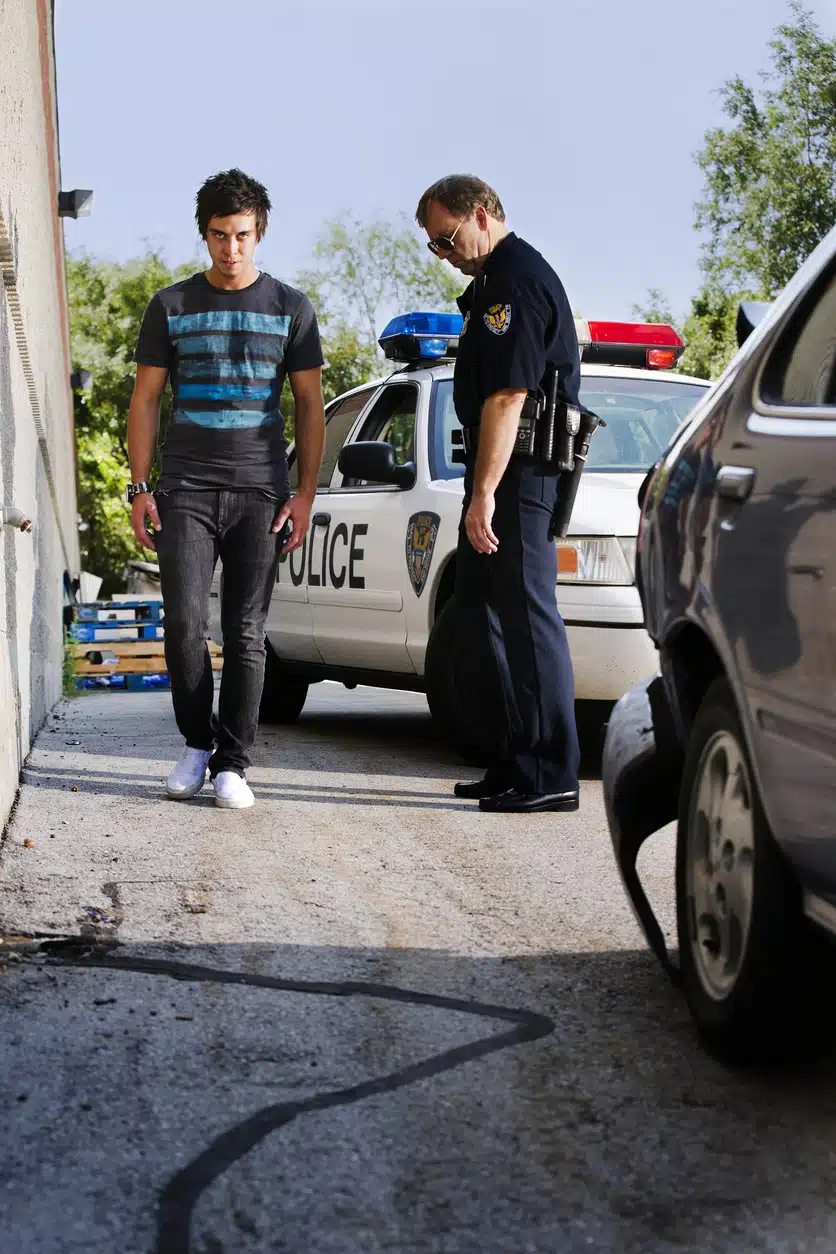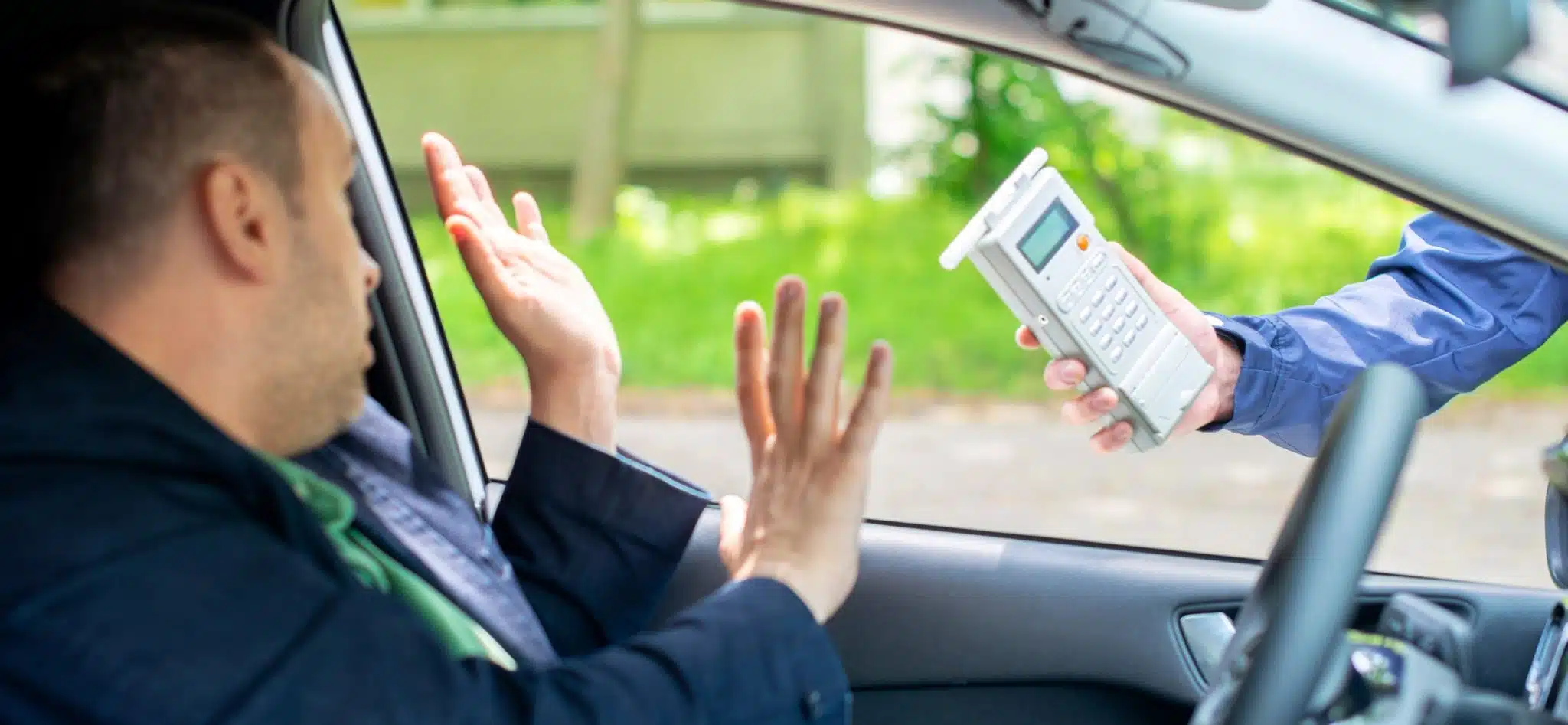What Happens if you Refuse a Breathalyzer in Florida?
Posted by David C. Hardy on January 25, 2024
How a Typical DUI Case Begins
Imagine you are driving on a Tampa, Florida roadway, in the early hours of the morning, coming home from a party at a friend’s house. Perhaps you’ve had a few drinks over the course of the evening, but you don’t believe that your ability to drive has been impaired.

DUI cases often begin when a police officer pulls a driver over for a minor traffic infraction.
A law enforcement officer pulls your car over because you were driving over the speed limit, or because you had a taillight out, or because the officer thought you were weaving over the lane markers on the road. There are dozens of reasons why an officer might pull a person over.
When the officer approaches your car, she thinks she can detect the odor of an alcoholic beverage coming from your person, and she believes that your eyes are bloodshot. In her opinion, you struggle to find your registration and driver’s license.
When the officer asks you where you are coming from, you answer truthfully, that you are coming from a party. When the officer asks you if you have had anything to drink, you again answer truthfully, stating that you had two or three beers over the course of the evening.

The field sobriety tests that Florida law enforcement use include the horizontal gaze nystagmus (HGN), walk-and-turn, and one-leg stand. These tests allow an officer to observe an individual’s balance, attention level, and physical ability, to evaluate whether or not a driver may be impaired.
In cases like this, the officer is likely to ask you to perform field sobriety exercises. Though many people think these exercises are pass / fail, they are not. Rather, the officer is looking for “clues of impairment.” In Hillsborough County Florida, two of the tests that the Tampa Police Department and the Hillsborough County Sheriff’s Office normally use are the walk and turn test and the one leg stand test. These tests are divided attention tests – they require persons suspected of DUI to divide their attention between following simple instructions and performing simple physical tasks. They are intended to help an officer decide whether a driver is impaired by alcohol or drugs.
When a law enforcement officer believes that that a driver is impaired, the officer will arrest the driver and bring them to the Hillsborough County Jail on Orient Road. At the jail, the officer will ask the driver to submit to a breath test to determine the level of alcohol in their breath.
Hillsborough County Jail Central Breath Testing
At the Hillsborough County Jail Orient Road facility, the sheriff’s department maintains instruments designed to measure the amount of breath alcohol in a person’s body. The legal breath alcohol limit for a driver in Florida is .08.
Both the Tampa Police Department and the Hillsborough County Sheriff’s Office bring persons arrested for DUI to the Central Breath Testing Unit at the Orient Road Jail.
Must a Florida Driver Arrested for DUI Submit to a Breath Test?
If you have a Florida driver’s license, you may have noticed a sentence in small print at the bottom of your license which states: Operation of a motor vehicle constitutes consent to any sobriety test required by law.
Does this mean that the law enforcement officer can physically force a person arrested for DUI to submit a breath sample? The answer is no. To be clear, there are times when law enforcement can force a DUI suspect to provide a blood sample. This is the case when a law enforcement officer has probable cause to believe that a person has driven under the influence, and someone has suffered death or great bodily injury.
However, in a typical Hillsborough County DUI in which no one has been injured, the law enforcement officer cannot force a drive to submit to a breath test.
What Happens when a Person Arrested for DUI in Florida Refuses to Take a Breath Test?

When a person arrested for a DUI in Florida tells a law enforcement officer that they are going to refuse to take a breath test, the law enforcement officer must inform them that if they continue to refuse, their Florida Driver’s License will be suspended for one year if it is the person’s first time refusing a breath test, or 18 months if the person has a prior refusal to take a breath test. Also, the law enforcement officer must tell the person that if this is their second refusal, that they can be charged with a misdemeanor for refusing to take the breath test.
What are the Disadvantages of Refusing a Breath Test?
Though a law enforcement officer cannot force a Florida driver to take a breath test, there are disadvantages for the driver if he or she refuses.
First, if this is the first time that the person has refused a breath test, then the Florida Department of Highway Safety and Motor Vehicles (DHSMV) will suspend the person’s driver’s license for one year. During the first 90 days of that suspension, unless the person gives up their right to a DHSMV formal review hearing, that person won’t be eligible for a hardship driver’s license. A hardship driver’s license allows a person to drive for work, educational purposes, religious services, and medical appointments.
If the person has refused a breath test in the past and refuses a second time, the DHSMV will suspend the person’s driver’s license for 18 months, and that person will not be eligible for a hardship license during that entire 18-month suspension period.
However, if a person with a first time DUI takes the breath test and the sample comes back above .08, the DHSMV will suspend that person’s Florida driver’s license for just six months. If the person been arrested for DUI in the past and provided a breath sample in that prior case, and they again provide a sample in the new case and the result is above .08, then the DHSMV will suspend that person’s driver’s license for one year, and that person will be eligible for a hardship license after the first 30 days of that suspension.
Second, when a person accused of DUI refuses to take a breath test, the prosecutor in a criminal trial can use that refusal against the driver at a trial. This is called the “consciousness of guilt” argument. Basically, the prosecutor will argue to the jury that the driver refused to provide a breath sample because they knew that they were driving with a breath alcohol level above .08. To a jury, this can be a compelling argument.
Third, there is always the possibility that if the person arrested for DUI provides a breath sample, that the result be under .08. In cases like this, the law enforcement officer will likely then ask the driver to provide a urine sample so that the sample can be checked for drugs. If that urine test comes back negative for drugs, your attorney can request that the Hillsborough County State Attorney’s Office dismiss your DUI case. Depending on the facts of the case, the prosecutor might agree to dismiss the case.
What if a Driver with a Florida Commercial Driver’s Refuses to take a Breath Test?
For a person that holds a Florida commercial driver’s license (CDL), the consequences of refusing the breathalyzer test are severe.

For a person that holds a commercial driver’s license, the consequences of refusing a breathalyzer in Florida are severe.
For a first time breath test refusal, the Florida DHSMV will suspend the person’s commercial driver’s license for one year. This one year suspension applies whether or not the person was driving a commercial vehicle at the time of the stop. While the driver may qualify for a hardship license, a hardship license cannot be used to drive a commercial vehicle.
If the CDL holder was transporting hazardous materials in a commercial vehicle at the time law enforcement stopped the vehicle, the CDL disqualification will last at least three years. Again, it’s important to remember that the CDL holder is not eligible for a hardship license to operate a commercial motor vehicle.
For a second refusal, the the Florida DHSMV will suspend the person’s commercial driver’s license for life.

Attorney David C. Hardy is a former DUI prosector who now represents persons accused of DUI.
Hiring the Best Tampa DUI Lawyer in Tampa
If you or a loved one has been arrested and charged with a DUI in Tampa, Florida, you need the best Tampa DUI attorney.
Attorney David Hardy is a former Tampa DUI prosecutor who now works as a DUI defense attorney. Attorney Hardy has handled many hundreds of DUI cases as a prosecutor and as a defense attorney. He has extensive experience with DUI breathalyzer refusal cases, as well as DUI cases involving breathalyzer tests. If you need help with a Tampa DUI, contact the Hardy Law Firm, P.A.
Posted in Florida DUI Defense

David C. Hardy
David C. Hardy is a criminal defense attorney with offices in Tampa, Florida. He is a former prosecutor that is Board Certified by the Florida Bar and The National Board of Trial advocacy as an expert in criminal trial law. He practices in the areas of federal criminal defense, Florida criminal defense, and Florida DUI defense.
